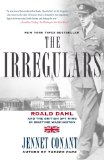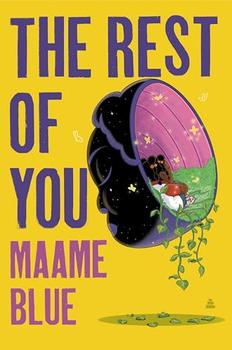Summary | Excerpt | Reviews | Beyond the Book | Readalikes | Genres & Themes | Author Bio

Roald Dahl and the British Spy Ring in Wartime Washington
by Jennet Conant
When he arrived on Elevsis, Dahl had never been in a dogfight, never shot down a kraut, never seen a friend die. By April 24, after almost two weeks of intensive flying, engaging the enemy as many as three or four times a day, and culminating in a prolonged siege known as the Battle of Athens, he had seen more air-to-air combat than he cared to remember, racked up his share of kills and many times more unconfirmeds, and watched as the better part of his squadron was wiped out. In the end, they were down to a handful of bullet-ridden planes and battle-shocked pilots and were forced to hide from the swarms of German patrols in a grove of olive trees at Argos. After German planes strafed their camp and destroyed their fuel and ammunition stores, the most senior pilots took off for Crete in the five serviceable Hurricanes, while the remaining survivors of 80 Squadron were flown out of the country. By April 30 the Germans expelled the British from Greece and by May had won Crete. The retreating British divisions crawled slowly toward Athens and suffered extremely heavy losses before they were finally evacuated by the navy. Roughly 13,000 men were killed, wounded, or taken prisoner. It was a debacle from start to finish.
The 80 Squadron was re-formed and sent on to Haifa, on the coast of Palestine, where they engaged the Germans again in the Syrian campaign. They had a full-time job trying to protect the British destroyers stationed in the harbor, which were also under attack from Vichy French forces. Dropping a brief line to his mother, Dahl bragged that he had managed to bag five enemy planes and probably many more on the ground. He participated in another three weeks of fierce fighting, during which the Vichy French succeeded in shooting down four out of nine pilots in his squadron, before his headaches returned with a vengeance. The blinding pain tended to hit when he was in the middle of a dogfight, just as he was diving or doing a steep turn, and on more than one occasion brought on a blackout that caused him to lose consciousness for several seconds. The squadron doctor ascribed the episodes to gravitational pressure and the toll it was taking on his old head injury. Dahl had become a danger not only to himself, but to his airplane, which the RAF regarded as valuable property. He had flown his last sortie. He was declared unfit to fly and at the end of June shipped home as a noncombatant.
Dahl had been on leave, convalescing at his mother's small cottage in the rural village of Grendon Underwood, in Buckinghamshire, and pondering his future in some dreary ministry office in London, when he was summoned to the London office of Harold Balfour, the undersecretary of state for air, and informed that he was being sent to the United States as part of a diplomatic delegation. Dahl was stunned. He had known his present state of limbo could not continue indefinitely, that eventually he would have to find something to do, but he was back in the bosom of his family, and that had seemed like enough after what he had been through. He had been away from England for almost three years, first for the Shell Oil Company and then for the RAF, and it had been an emotional homecoming. He was one of seven children, including two from a previous marriage, and his mother's only son, and he had been raised in a household of women, fussed over and adored his entire life, and his safe return had been cause for great relief.
While his mother was a singularly stoic Norwegian, he knew his extended absence had been difficult for her. She had seen too many of those she held most dear snatched away unexpectedly not to find good-byes, even temporary ones, painful. Sofie Magdalene Hesselberg was twenty-six when she married Roald's father, Harald Dahl, and left Norway to go live with him in the small fishing village of Cardiff, in the south of Wales, where he owned a prosperous shipping supply firm. She became a mother to her husband's young son and daughter by his first wife, who had died in childbirth, and in quick succession bore him another four children, two girls, a boy (Roald), and another daughter. Then, when Roald was three, tragedy struck. In the space of only a few weeks, his mother lost the eldest of her three girls, seven-year-old Astri, who died of appendicitis, followed by the death of her fifty-seven-year-old husband, whose heartbreak had been compounded by pneumonia. A woman of rare courage and resolve, she never gave way to despair, even though she had been left alone with five children to care for and was expecting another baby in a few months' time. She also never wavered in her determination to see her children properly educated. It had been her late husband's deepest conviction that the English preparatory schools had no equal in the world, and he had left her sufficiently well off to see his wishes carried out. According to the hard British tradition, Dahl was sent away to school in England at the age of nine, first to St. Peter's, and then to Repton, which ranked a notch or two below Eton in social standing but nevertheless had a solid reputation.
Copyright © 2008 by Jennet Conant




They say that in the end truth will triumph, but it's a lie.
Click Here to find out who said this, as well as discovering other famous literary quotes!
Your guide toexceptional books
BookBrowse seeks out and recommends the best in contemporary fiction and nonfiction—books that not only engage and entertain but also deepen our understanding of ourselves and the world around us.